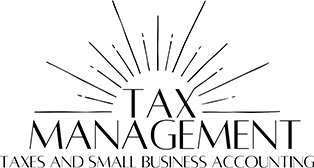When you are ready to reopen your business, you need to be aware of the legal ramifications of your actions. We all want to protect or employees and customers to enable our businesses to recover from the Safer at Home Period. The following is advice that Catherine Tansey has prepared.
Here’s what you can do to protect your business
While we don’t know exactly what employers are likely to be held liable for, we do know a carefully considered return to work program — with accompanying documentation — will best position employers for potential legal action.
Make a return to work plan
Think about how you’ll handle:
Social distancing requirements
Rearrange the office layout, create one-way entrances and exits to curb face-to-face contact, and implement shift work, if possible.
Employees who’ve had COVID-19
COVID-19 is a communicable disease and not a disability. Therefore, employers can require employees to disclose to you if they’ve had it. Mandate that employees receive medical clearance before returning to the workplace.
Temperature checks
The EEOC states that employers can require temperature checks for all employees entering the workplace to reduce community spread — but employers should keep in mind that not all people with COVID-19 have a temp.
Face masks
The CDC recommends that everyone wear face coverings or masks in public, and EEOC has released guidelines indicating employers can require the use of PPE in the workplace. Kindly share the facts with employees and provide instructions for proper wear and hygiene for masks.
WHILE WE DON’T KNOW EXACTLY WHAT EMPLOYERS ARE LIKELY TO BE HELD LIABLE FOR, WE DO KNOW A CAREFULLY CONSIDERED RETURN TO WORK PROGRAM — WITH ACCOMPANYING DOCUMENTATION — WILL BEST POSITION EMPLOYERS FOR POTENTIAL LEGAL ACTION.
Create a communicable illness policy
If your handbook doesn’t have a communicable illness policy, protect your business and employees by creating one ASAP and updating your employee handbook.
“An employer with no communicable-illness policy in a time of the clear and self-evident rising risk of exposure to COVID-19 could be subject to lawsuits related to workers’ compensation, unfair labor practice, and negligence,” says lawyer and CEO of legaladvice.com David Reischer.
Communicate with your employees
Talk to your employees. They’re your best litmus test to find out how your team feels about returning to work. If your people are feeling nervous, uncertain, or unclear on how they’ll manage family members who may still be home, consider extending tele-work arrangements.
We recognize this isn’t possible or practical for large swaths of small businesses. If that’s the case, take a thoughtful approach to your return to work plan to ensure you’re helping keep everyone as safe as possible.
Tax Management & Financial Horizons is open using extreme care to protect employees and clients. If you have accounting, tax or other questions regarding reopening, use of SBA Paycheck ProtectIon Loan Funds to achieve maximum forgiveness please contact us at 414 803-3164.


